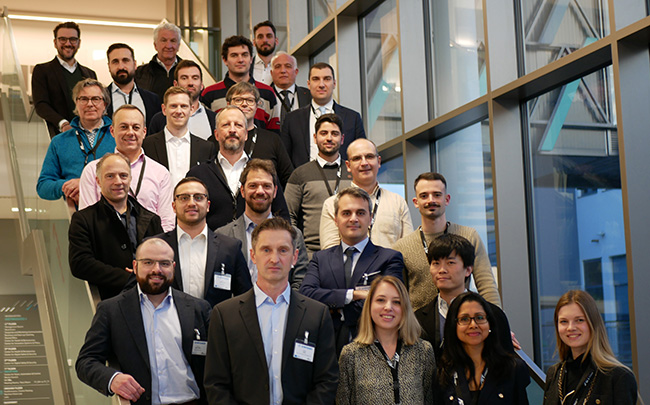
CIDETEC Energy Storage will work on the batteries for these heavy vehicles, which have a range of up to 750 km and are expected to be marketable in 2029.
As part of the European Union's strategy to electrify the transport network of our roads, the European research project EMPOWER (Eco-operated, Modular, highly efficient, and flexible multi-POWERtrain for long-haul heavy-duty vehicles) has begun, in which CIDETEC Energy Storage participates. Over the next four years, two flexible, modular, and scalable heavy vehicles will be developed, powered by a zero-emission electric propulsion system and with a total weight of at least 40 tons.
One of the trucks will have a fuel cell system and will reach up to 750 km of autonomy. The other, powered solely by batteries, will be able to travel up to 400 kilometres on a single charge. The battery-powered electric truck is designed to be used in regional distribution, while the hydrogen-powered truck is intended for long-distance journeys.
On the other hand, the autonomy and performance of the two trucks will be demonstrated in five different use cases, with various scenarios and distances, including cross-border corridors between different member states of the European Union. Modular and scalable EMPOWER technology can be transferred to VECTO 4, 5, and 10 vehicle groups, and is designed to achieve TCO parity with the conventional diesel truck 2020 benchmark by 2030, with a production volume of more than 10,000 vehicles/year.
Representatives of the 14 project partners, including CIDETEC Energy Storage, attended the project launch meeting that recently took place at the AIT headquarters in Vienna. With a budget of around 18 million euros, the two vehicles are expected to be delivered with a Technology Readiness Level of 8 upon completion of the project at the end of 2026, and it is expected that they will begin to be commercialised in 2029.
CIDETEC Energy Storage, as an expert partner in battery development, will contribute to:

|
Funding frame:
|